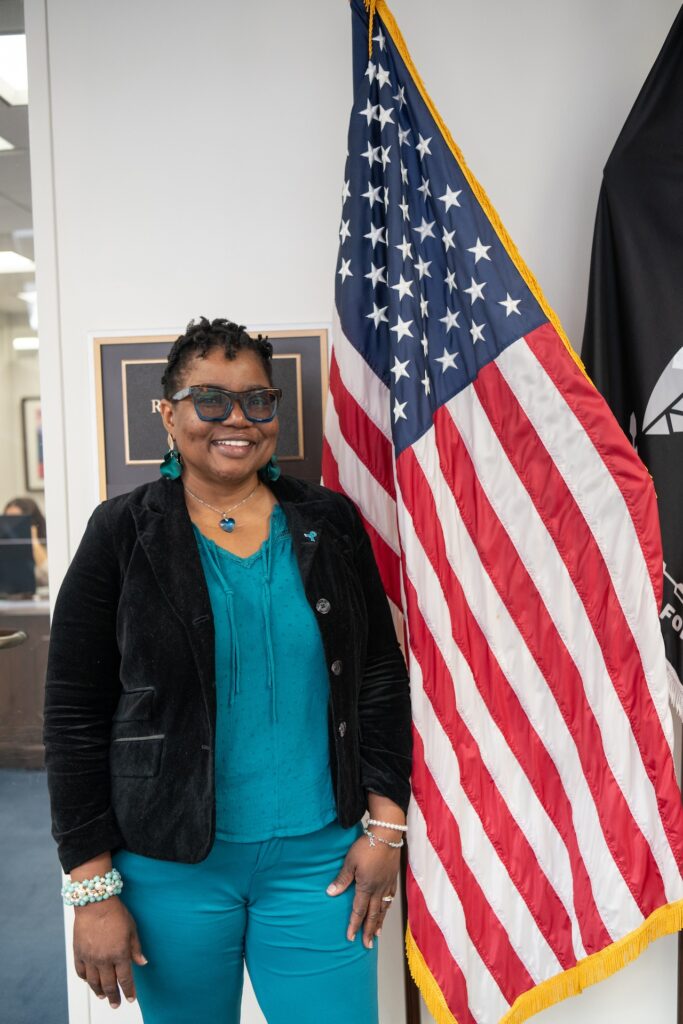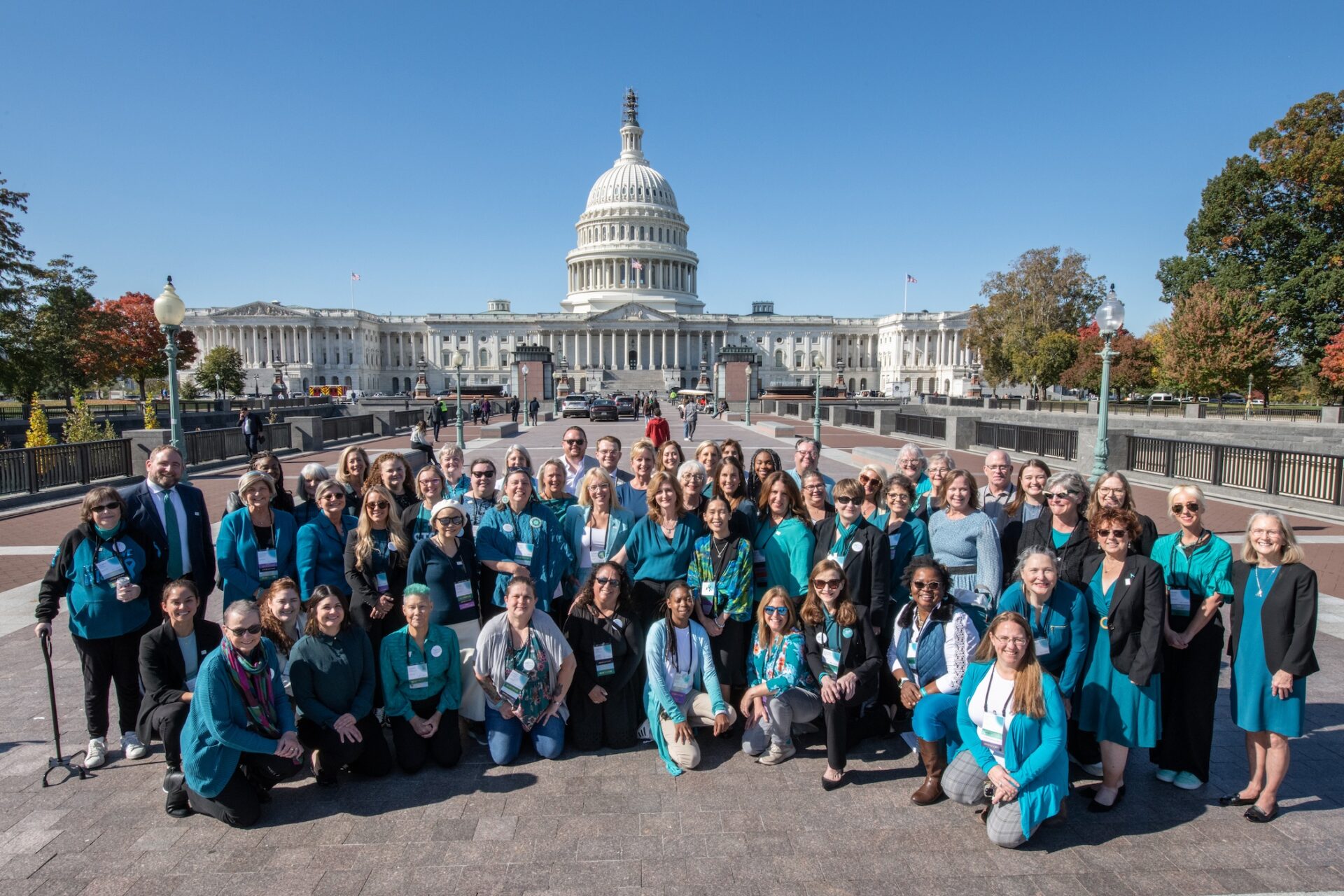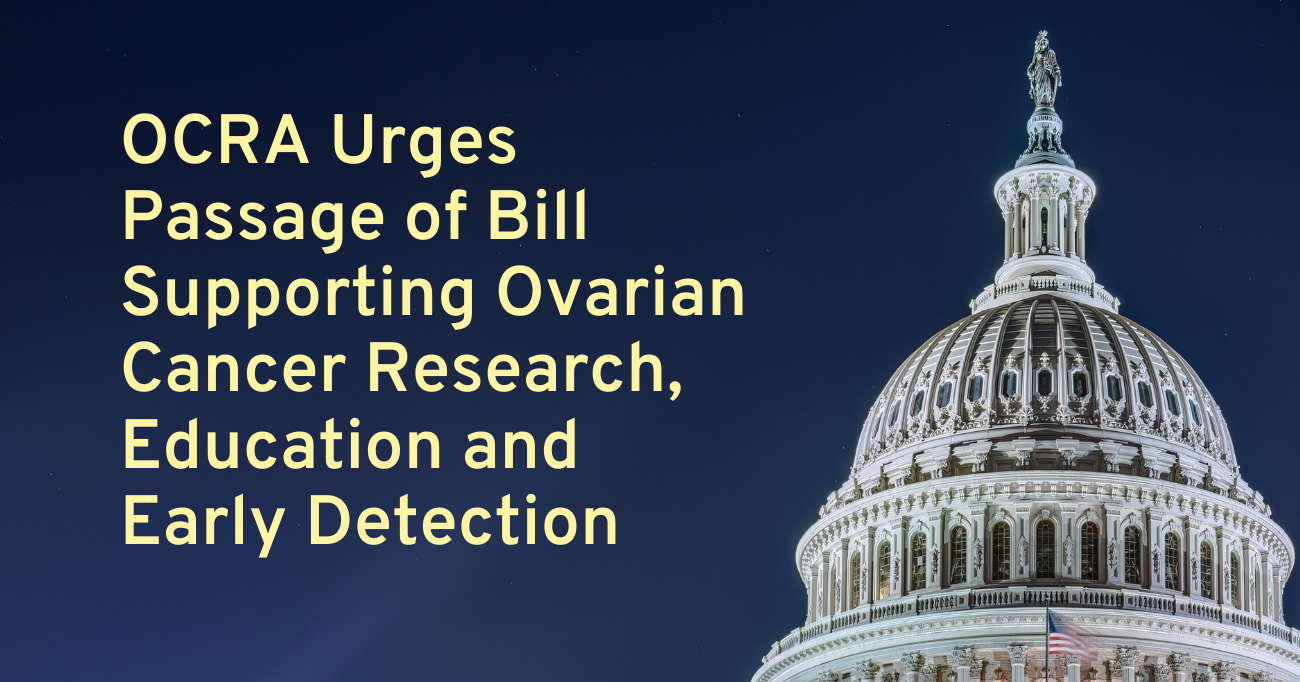Written by Chad Ramsey, Vice President, Policy, Ovarian Cancer Research Alliance
FY26 Budget & Appropriations Update: Approaching August with Focused Advocacy
As Congress advances the FY 2026 appropriations process, gynecologic cancer advocates have a key opportunity to engage. The House has delayed its markup of the Labor, Health and Human Services (Labor-HHS) Appropriations bill until after the August recess, giving us added time to connect with Members of Congress while they are home in their districts.
Earlier this month, the House released its 302(b) allocations, which set funding limits for each appropriations subcommittee. While the Labor-HHS allocation is below current FY25 funding levels, the reduction is less than the cuts proposed in the President’s budget. This gives us a slightly more favorable, though still challenging landscape to advocate for sustained investment in cancer research, prevention, and education programs.
With lawmakers back home throughout August, this is a critical window to influence final decisions. We are urging all advocates to contact your representatives and make clear: NIH, CDC, and gynecologic cancer programs must be maintained and prioritized.
Please take action now through our Action Alert—and consider requesting a local meeting or attending a town hall event. Your voice is essential in this stage of the process.

Multi-Cancer Early Detection (MCED) Act Gaining Support in House and Senate
Support continues to grow for the Multi-Cancer Early Detection Screening Coverage Act (H.R. 842 / S. 339):
These strong bipartisan numbers matter. The more support we build, the more likely the bills are to move through committee and toward a floor vote. The MCED Act would help ensure Medicare beneficiaries have access to new, groundbreaking technologies that, once FDA-approved, may be able to detect multiple cancers including ovarian cancer, at earlier, more treatable stages.
If your Members of Congress haven’t signed on yet, the August recess is the perfect time to ask.
New Legislation: Clinical Trial Modernization Act Introduced
We’re proud to support the newly introduced Clinical Trial Modernization Act, a bipartisan effort to improve patient access and reduce barriers to clinical trial participation. The bill would:
- Expand trial availability beyond large academic centers
- Allow for remote enrollment, consent, and participation
- Help offset travel and financial burdens for patients
These changes would help ensure more equitable access to cutting-edge cancer treatment options and make trials more inclusive across geography, income, and background. We’ll be working to grow support and earn passage for this important legislation.


